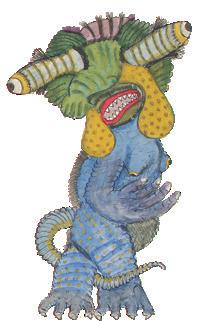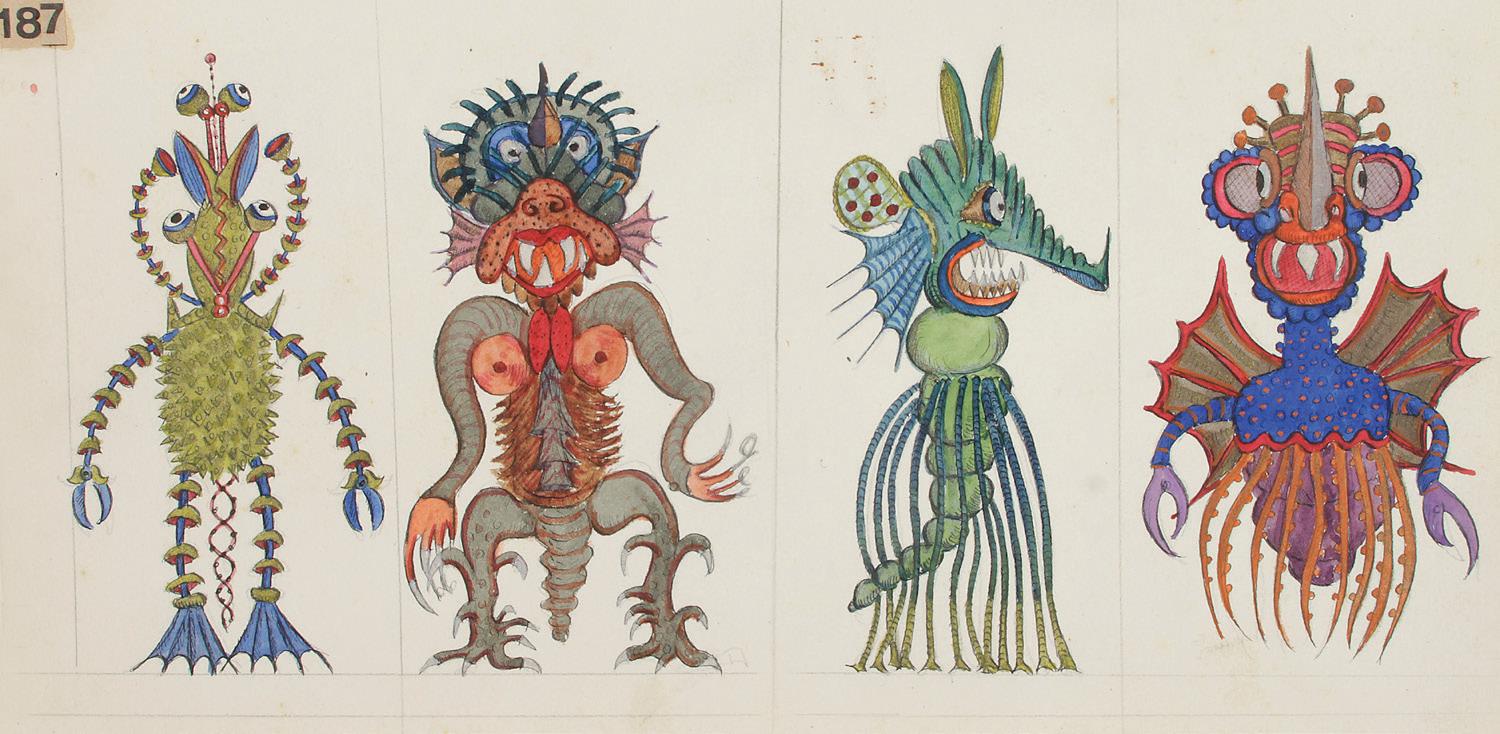OUT OF MY HEAD




 BY BRIAN CHIDESTER
BY BRIAN CHIDESTER







 BY BRIAN CHIDESTER
BY BRIAN CHIDESTER


In 1932 the CatalonIan artIst Josep Baqué Began the process of inventing a world through his art. He drew imaginary creatures whimsical beasts, hybrid animals, grotesque monsters — and sequenced them in a bound volume (or “bestiary”) in which he toiled for the next thirty-five years. By the time of his death in 1967, however, he had shown it to almost no one.
A brief note on the book’s opening flyleaf reads: “Inte rior of some marvelous large islands at 2 million meters above sea level, unexplored, uninhabitable by civilized beings, a country of warm snow, discovered by the brush of Josep Baqué.” Beyond that his intentions for the project remain a mystery.
By all accounts the artist lived an unextraordinary existence. That is to say: there is nothing about his surface biography which would point to the imaginative inner
world he was able to inhabit whenever his brush touched paper. He was born in Barcelona in the year 1895. According to family history he lived there all but a few years of his life, in the same house as his mother, Secundina. He was a devout Catholic and employed as a police officer regulating traffic at an intersection in the plaza known as Plà de l’Os. A handful of prayer cards, two police IDs, some old snapshots, and a self-portrait on a postcard sur vive as documentation. A great nephew — Esteve Freixa i Baqué — is the lone source of oral history on his Uncle Josep. And then there is the bestiary itself.
Deriving biographical detail from examining works of art is always risky business the construction of a psychol ogy and motivation being usually simplified to the point of essentialization. And yet there are definite things we can glean about Baqué the man by looking at his drawings. For
one, he was prone to organization, almost obsessively so. We know this because his creatures are all neatly organized according to phylum or taxonomy, of which there are nine
OPPOSITE LEFT: This frontispiece or “splash page” is the only one in Baqué’s entire bestiary that bears any hint of narrative. It is ostensibly a ritual sacrifice scene and the text at the bottom translates as such: “Interior of some marvelous large islands at two million meters above sea level, unexplored, uninhabitable by civilized beings, a country of warm snow, discovered by the brush of Josep Baqué.”
OPPOSITE RIGHT: Two cover sheets from the bestiary where Baqué states his intention in terms of scope. On the first one, created in 1932, he proposes 900 “wonders of animal life.” For the second, he bumps it up to 1500, placing a piece of paper over the “9” and adding a “15.” In the second cover he also states the year of his bestiary as “Año 500” (Year 500)—which suggests he may have set his imaginary realm in the pre-Catholic/pre-medieval past.






